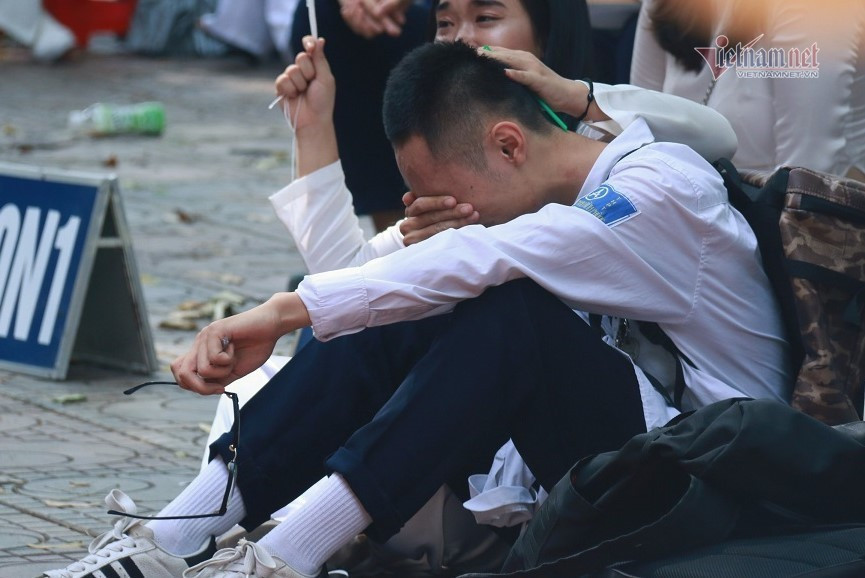
In recent years, many schools have organized or partnered with organizations to organize life skills classes, where orators relate stories and move students to tears. Doubts about the necessity of life skill classes have been raised and parents wonder if this is a good educational method or just a kind of ‘emotional manipulation session’ which may affect students’ psychology.
At many sessions, speakers talk and ask students to discuss dreams, aspirations and filial duty, relate stories, and mention issues students face in modern society. Many students are unable to hold back their emotions and end up crying.
The principal of a secondary school in Nghe An believes that it would be better to control only the classes which he believes cause ‘psychological manipulation’ among students.
Life skill classes are considered useful extracurricular activities. Schools collect fees from parents to pay to organizers. For a long time, schools and educators have been criticized for focusing on providing students with academic knowledge while neglecting lessons about life skills.
As a result, more and more life skills classes have been organized. However, the classes still cannot lift parents’ concerns as some analysts have warned about the so- called ‘emotional manipulation’.
“Some schools invite narrators to talk to students. Other schools cooperate with life skill centers. In many cases, narrators take the initiative in connecting with schools. When running such counselling sessions, they build scenarios that psychologically manipulate students and lead students to experience transient emotions,” he said.
“The emotion manipulation leads to something akin to ‘collective hypnosis’. Students end up crying, mostly influenced by the so-called ‘crowd effect’, in an environment prone to emotional influence,” he continued.
“The noteworthy thing is that such programs will not bring positive educational outcomes,” he added.
“Some schools and teachers believe that once students burst into crying, this means success of the training program. They ‘measure’ the success of the programs by students’ tears. This is a blunder in education,” he concluded.
Educating students about filial piety and kindness is a mission of educators. But this needs a long process with many lessons provided at school and examples in society.
“Many parents tend to criticize schools that schools don’t pay appropriate attention to educate about filial devotion and humanity to students. However, organizing life skill sessions is not the right way to provide life skills to students,” he said.
Tran Thanh Nam, vice rector of the Education University, a member school of Hanoi National University, stressed that the purpose of education is not only to provide academic knowledge that changes learners’ awareness, but also to drive students towards positive behaviors aligned with the values of truth, goodness and beauty.
“But educating to change students’ attitudes differs from emotionally manipulating or overwhelming students. The success of a moral lesson cannot be measured by the volume of tears shed by learners,” Nam said.
“We cannot assume that students who display remorse or self-punishment have truly learned a lesson. In reality, some people are good at publicly expressing regret and apology on social media, but nothing changes in their real lives,” Nam said.
Nam said that if educators want to influence young people's attitudes and emotions, they should evoke positive feelings such as pride and appreciation through their stories, rather than negative emotions like shame and guilt.
“Feelings of sadness, shame and guilt will only cause students to feel tired and drained. If students cry out of happiness and pride after an educational activity, this should be encouraged. However, if tears evoke shame, guilt or feelings of unworthiness, this contradicts the spirit and goals of humanistic education,” he said.
According to Nam, organizers of educational activities should discover if the targets of each lesson are being met, and whether students’ behaviors are changing after each session, rather than simply counting immediate emotional reactions.
“Parents should not evaluate the quality of educational activities by their children's remorse or sense of guilt and unworthiness, nor should they judge the effectiveness of teachers by the number of teary students without considering their sustainable behavioral changes after receiving lessons. Otherwise, it's merely psychological manipulation, not an educational activity,” Nam added.
Thanh Hung